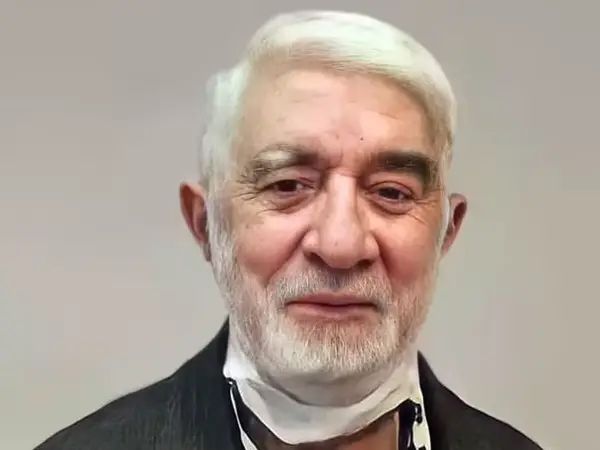A prominent opposition figure says Iran needs a “fundamental change” based on “Woman, Life, Freedom” and constitutional change, in a statement released on Saturday.
Mir-Hossein Mousavi, who was a presidential candidate in 2009 and has been under house arrest since 2011, referring to government violence against protesters, said that such events have “demonstrated major truths for the nation.” The rulers of the Islamic Republic are not willing “to take the smallest step to meet the demands of the people.”
But what was noteworthy in Mousavi’s message, dubbed “To save Iran,” is his conclusion that the people have given up hope for reforms.
The leader of the Green Movement, born from large popular protests in 2009, is known as a staunch reformist, or someone who believes the Islamic Republic can be reformed to become a more democratic and tolerant polity.
But Mousavi’s statement seems to reject reform as a viable alternative, urging fundamental change, a new constitution and a constitutional assembly.
Although he does not openly call for regime change, but his demands, if implemented could lead to a new and democratic political system.
Mousavi in his statement has implicitly repeated what exiled Prince Reza Pahlavi has been saying for years, and other opposition activists have echoed in the past five months – transition from the Islamic Republic.
“Iran and the Iranians need a fundamental change, that takes its main features from the pure movement of ‘Woman, Life, Freedom.’ Mousavi said. These three words are “the seeds of a bright future, free of oppression, poverty, humiliation and discrimination.”
This represents an important turning point when an opposition figure from inside Iran demands a new constitution, implicitly rejecting the current leadership altogether.
However, Mousavi carries a heavy political baggage that has dented his popularity. When protests began in 2009 against the highly suspicious victory of Mahmoud Ahmadinejad in presidential elections that year, millions of Iranians poured into streets. They saw Mousavi who was the opposing candidate, as their leader, but he refrained from criticizing Supreme Leader Ali Khamenei who was ultimately responsible for engineering the vote count and the subsequent suppression of protesters. Mousavi came across as someone who did not want to challenge the Islamic Republic.
He also served as prime minister in the 1980s, when the government killed thousands of people in prisons. His critics say that Mousavi has not apologized or explained why he remained silent at the time.
Nevertheless, Mousavi puts forth three demands in his statement. First, a free and untainted referendum about the necessity to change or write a new constitution. Second, in case of a positive vote by the people, to form a constitutional assembly composed of the “real representatives of the nation” through a free and fair election. Third, a second referendum to approve the draft constitution to establish a regime based on rule of law, in conformity with human rights and the will of the people.
Mousavi acknowledged that his three demands require further clarifications, as for example who would implement the changes needed, but he appealed to sense of unity and cooperation “to save Iran”.
Iranians have been hotly debating the need to form an opposition council to manage the protest movement and plan for transition to a new form of government. So far, there are no signs that prominent activists abroad are about to untie and establish a framework of coordination. Inside the country no such move is possible because of repression, but many people seem willing to support a council formed abroad.
